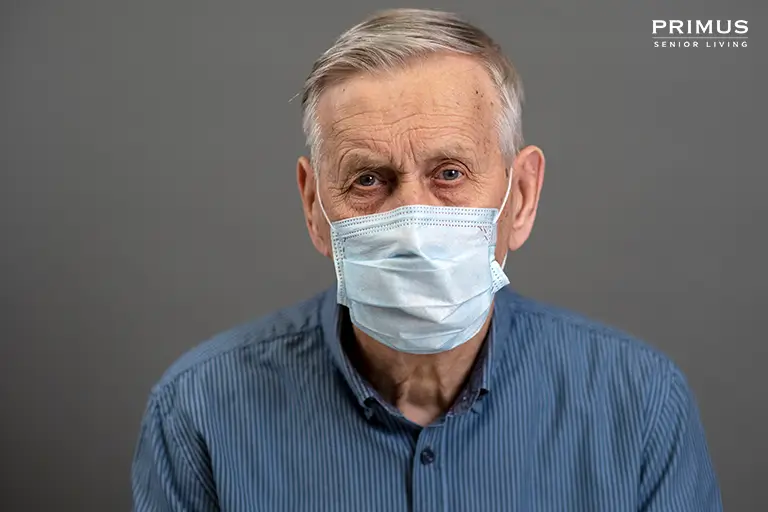The crisis brought to us by COVID-19 is increasing every day. The older adults are at an elevated risk of complications from COVID-19 and are dying at a higher rate than younger patients. Researchers show that adults over the age of 60, especially those with pre-existing medical conditions like heart disease, lung disease, diabetes and cancer are more likely to have severe -even deadly- effect than other age groups.
Essential Post Covid Care Tips for Seniors
- The geriatric population is being gripped by anxiety and panic. Those above the age of 60 are safe as long as they are not exposed to the virus. Staying completely locked down within their homes will safeguard them. Due to this they may experience significant isolation already, and social distancing may worsen complications from seclusion. This may also place elders at a risk due to missed opportunities to catch cognitive or general health decline and unrecognized falls.
- One of the most important ways to lower the risk of older members getting the infection is to limit in-person visits. This may be difficult for people who like to be in touch and cherish spending time with people. Social distancing does not mean isolation or loneliness. It is imperative that we keep them safe, but also keep in mind social isolation can have a negative effect on older people’s immunity and mental health.
- With many places of worship closing their doors until the pandemic eases, congregants, especially older people, may feel cut off. Caregivers can help them get connected to online services and virtual socialising to make them feel at ease.
- To help older adults to feel involved, purposeful and less lonely, one can help them with using smartphones, laptops and tablets and encourage people in their social circle who are outside their family to telephone, write notes or send cards to lift their spirits.
- To minimize the COVID-19 infection, one can postpone unnecessary visits to the doctor. It is a good idea to postpone elective procedures, annual check-ups and other non-essential doctor visits.
- Non-essential travel should also be put off especially those that might expose them to crowds. Designating an emergency contact in case of medical emergencies should also be considered. When caring for an adult, it is a good idea to stock up on medicines and other essentials to avoid going out.
- It is also very important to be informed and updated about the virus and the symptoms of the infection. While fever and respiratory symptoms have been widely recognized as key symptoms associated with COVID-19, these symptoms often present differently in older adults. For example, fever may be absent entirely during infection in older adults. Respiratory symptoms may either be masked or exacerbated by co-occurring diseases, such as COPD, that can further worsen outcomes.
As our understanding of the virus continues to improve, we must take all the necessary precautions, revise our knowledge of hygiene and care to make sure that we all are safe and protected.
You may also like

Top 10 Movies That Senior Citizens Must Watch
Watching movies is one of the greatest ways to relax and spend time with your loved ones. It helps us escape from reality and be engrossed in another world. At Primus Senior Living, we believe in the ability of movies to lift spirits and bring people together.
READ MORE


Leave a Comment